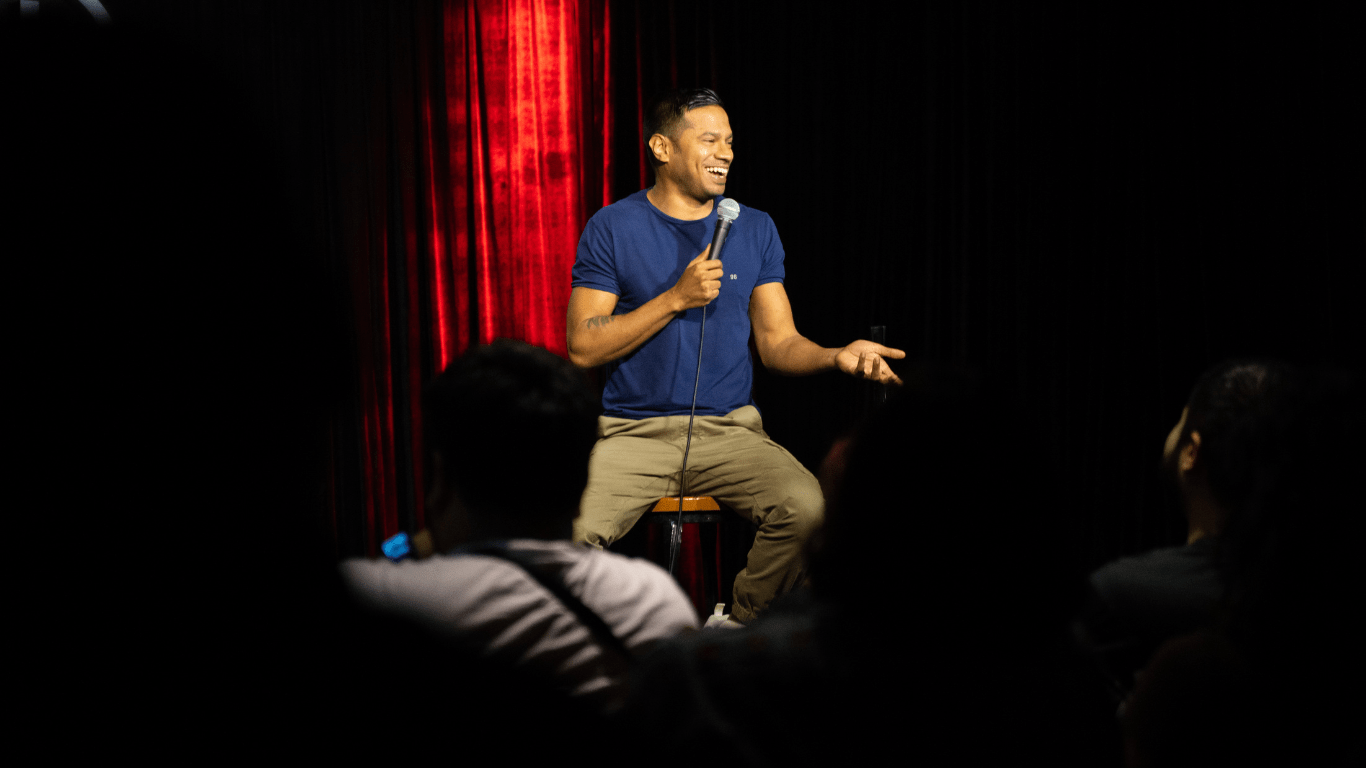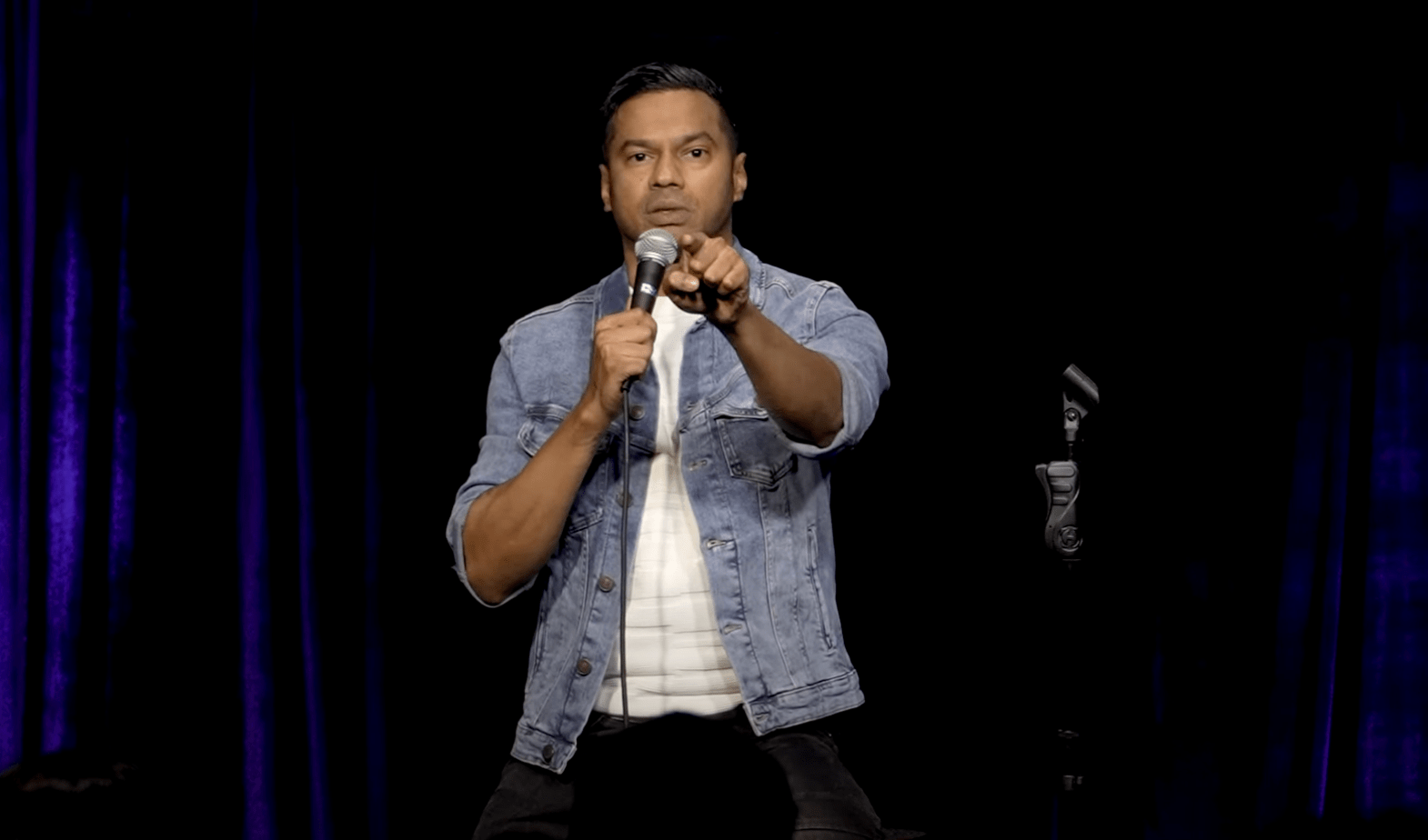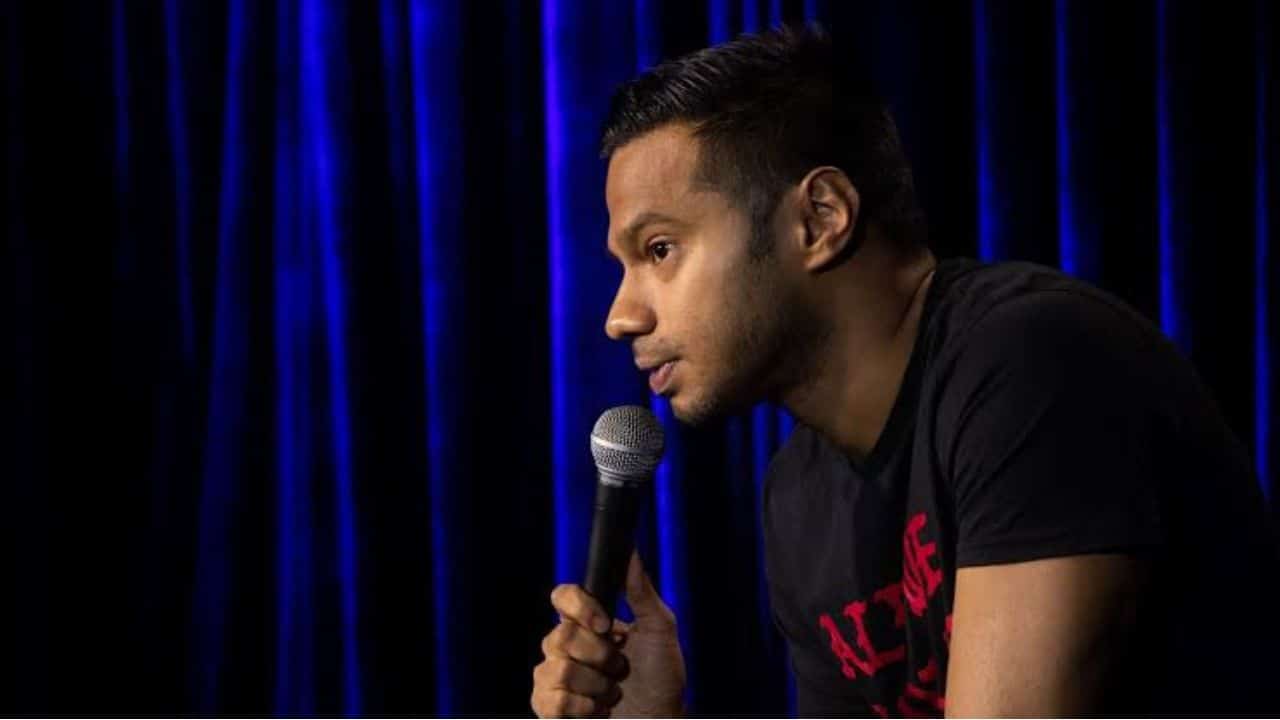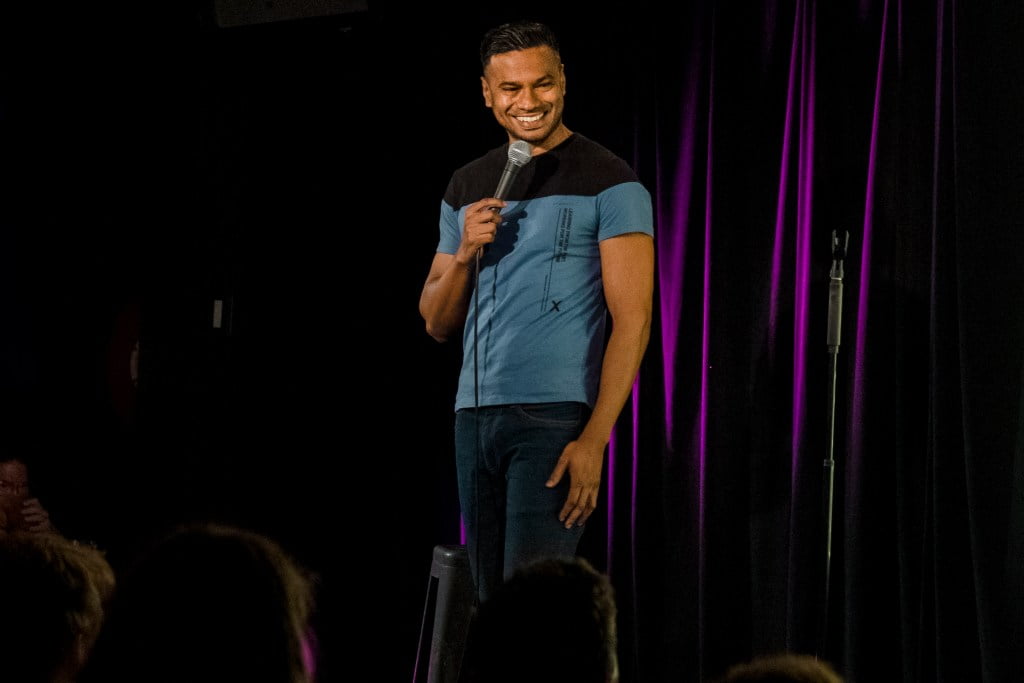Unfounded FIRs, targeted harassment, threats of violence, and vitriolic attacks online are increasingly all par for the course with speech or art that offends. And with societal acceptance, institutional silence, and political backing, this phenomenon is only growing unchecked. Claims of hurt sentiments, especially hurt religious sentiments, now allow for violent reprisals and targeted bullying of alleged ‘offenders’ with impunity. Everyone from public figures, artists, activists, and students to social media users is exposed to such bullying, threats, and weaponised legal harassment. Comedian Daniel Fernandes is the latest public figure to be subjected to this.
Daniel Fernandes cancelled his Hyderabad show after a joke he made a few weeks ago led to outrage and culminated in a local BJP leader threatening to physically assault the comedian at the venue of his show if he were to turn up.
Daniel Fernandes cancelled his Hyderabad show after a joke he made a few weeks ago led to outrage and culminated in a local BJP leader threatening to physically assault the comedian at the venue of his show if he were to turn up. Fernandes, in a video posted to his Instagram, cited safety concerns and potential harm to his audience, crew, and himself for deciding to cancel the show. He added that he is still receiving calls, messages, and emails threatening violence and vandalism.
The outrage started after a video of the comedian uploaded to YouTube and Instagram was claimed to be offensive to Jains and was said to have hurt their religious sentiments. Fernandes had done an innocuous bit following the news of a group of Jains in Delhi buying goats before Bakri Eid while posing as Muslims. In what they claim was an effort to prevent animal slaughter during the festival, the group bought over a hundred goats and temporarily placed them in a Jain temple. Due to the incessant harassment that followed, Fernandes was compelled to take down the video and issue an apology.
Fernandes isn’t the first comedian, or artist for that matter, who has been strongarmed and bullied into apologising for their work or removing it (or self-censoring in one way or the other) to appease online mobs who relentlessly and systematically target and harass them into submission. In India, the full exercise and enjoyment of our freedom of speech is being rapidly infringed upon by the far-right, with claims of hurt religious sentiments, in what is essentially a show of Hindutva might.
Normalisation of violence: the case of Daniel Fernandes
Fernandes’ joke might be disagreeable to some and it can perhaps even cause hurt sentiments. Still, harassment and violence in response to that, as opposed to simply not engaging with his content, is symptomatic of a larger political issue and a resultant cultural shift that looks at violence stemming from outrage and hurt group sentiments more favourably. Such violence and harassment seem to, at best, be met with social indifference and, at worst, with social acceptance and thereby sanction. The responsibility is often shifted onto the victims of such harassment to not offend in the first place, while those who perpetrate or threaten this violence aren’t held to account.
Violent outrage in response to controversial art has long existed, especially art which is deemed as going against Indian cultural values. But now such outrage is becoming more widespread and homogenised, taking on a more political character than a cultural one.
The categorically false – yet popular – Hindutva narrative of Hindu persecution fuels the flames of public outrage and encourages harassment and violence towards transgressors who make, what is perceived as, “Hinduphobic” or “anti-national” speech. By portraying every speech, uttering, or comment regarding Hinduism – or Hinduism-adjacent religions like Jainism – or its adherents as a systematic, planned, and malicious effort to attack Hindus and their religious and cultural identity, violence is not only presented as a legitimate and reasonable response but positioned as resistance against this perceived persecution.
Violent outrage in response to controversial art has long existed, especially art which is deemed as going against Indian cultural values.
Far-right political efforts to provoke and fan the flames of violent outrage through systematic disinformation, misinformation, and calculated paranoia are engendering a culture where any reaction – illegality notwithstanding – to hurt religious sentiments, and consequent action to ‘protect’ one’s religion, finds social sanction and state backing.
While dwindling free speech protections pose a threat to everyone, it disproportionately targets the marginalised. Because what causes offence or hurt is so subjective, it’s easy to target marginalised individuals and groups for political reasons by claiming they were making disparaging remarks about religion or offending religious sensibilities.
Flexing hindutva might and institutional complicity
Harassing someone and threatening them with physical harm and violence cannot elicit a genuine apology. If those whose sentiments have been hurt expect the offender to do better, violence and threats are, undoubtedly, not conducive to reflection or learning. People and groups engaging in such harassment, claiming to seek an apology, only intend to strongarm public figures into submission, as a display of power and to serve as a cautionary tale to anyone who doesn’t toe the Hindutva line.
The BJP leader from Hyderabad who threatened Fernandes, referred to comedian Munawar Faruqui in his video. The politician said an example would be made of anyone who jokes about Jainism or Hinduism, further adding, ‘Munawar Faruqui toh yaad hain, na?’ (Don’t you remember [what happened] to Munawar Faruqui?). Faruqui was arrested in Madhya Pradesh in 2021 for making jokes that allegedly hurt Hindu religious sentiments, based on a complaint by a member of a local Hindutva outfit.
Faruqui was arrested in Madhya Pradesh in 2021 for making jokes that allegedly hurt Hindu religious sentiments, based on a complaint by a member of a local Hindutva outfit.
These are efforts by those on the far-right to flex Hindutva might by making an example of public figures who resist Hindutva, displaying that they have the power and backing to act with impunity against anyone who disagrees with or offends them. It is also an exercise at establishing Hindu supremacy by positioning Hinduism as being beyond reproach or comment, merely speaking about which in ways that don’t align with the hardline Hindutva view, will come with severe consequences.
Institutional compliance in the face of this translates into complicity and fosters a culture where the far-right has carte blanche in dealing with what they consider offensive. Despite issuing open threats against Fernandes, and potentially jeopardising not only his safety but those of the organisers and audience members if the show had taken place, there have been no legal consequences for the BJP politician who made those threats. Somehow Fernandes’ bit has evoked more outrage than a public threat of violence has.
Institutions should be the bulwark against the policing of free speech, but far from being defenders of personal liberties, institutions often engage in compliant silence or even malicious action. Law enforcement institutions, either by filing FIRs with little to no legal standing or allowing for the long detainment of those accused of hurting religious sentiments, are complicit in allowing the weaponisation of the legal system by Hindutva actors.
Munawar Faruqui’s 2021 arrest was made without any evidence, based on a Hindu nationalist’s word. Superintendent of Police Vijay Khatri told Article 14 that the comedian had made no offensive jokes during his show. Khatri said Faruqui was arrested because the complainant allegedly ‘heard’ him rehearsing offensive jokes with the intention of saying them on stage and also on the basis of old videos. Faruqui spent 37 days in jail after being denied bail by lower courts, only to be released after the Supreme Court granted him bail, describing the allegations against him as ‘vague’.
This culture of violent outrage has also made self-censorship an inevitable reality.
This culture of violent outrage has also made self-censorship an inevitable reality. So essentially, when the exercise of free speech isn’t curtailed by external influence, individuals are compelled to do it themselves to avoid being victims of harassment, violence, and expensive and unending legal troubles.
Deciding whether Fernandes’ bit was offensive or funny is up to each viewer’s discretion. The simple, yet effective, solution here is to opt out and disengage with content not suited to one’s sensibilities. But the harassment and threats Fernandes faced are a consequence of the troubling culture fostered by majoritarian politics. Right-wing politicians here engage in hate speech and incite violence against religious minorities and other marginalised people openly, and without consequence, while dissenters, activists, artists, students, and social media users are targeted, bullied, and jailed for harmless speech; this speaks to the Hindutva politics at play here.
Comedy can sometimes be truly offensive or inappropriate, and when it is, it should be called out. But violence and hooliganism as a response, to even the most offensive of art, is not the answer and should be vehemently opposed by society and the state. The normalisation of violent action and rhetoric in response to hurt sentiments is a dangerous phenomenon that we will need to reckon with sooner rather than later if we are to protect our right to free speech. Until then, the full exercise of our right to freedom of speech and expression will remain a dangerous business.
About the author(s)








